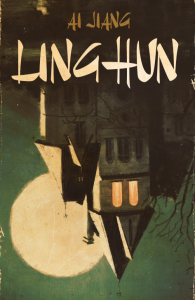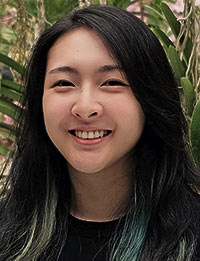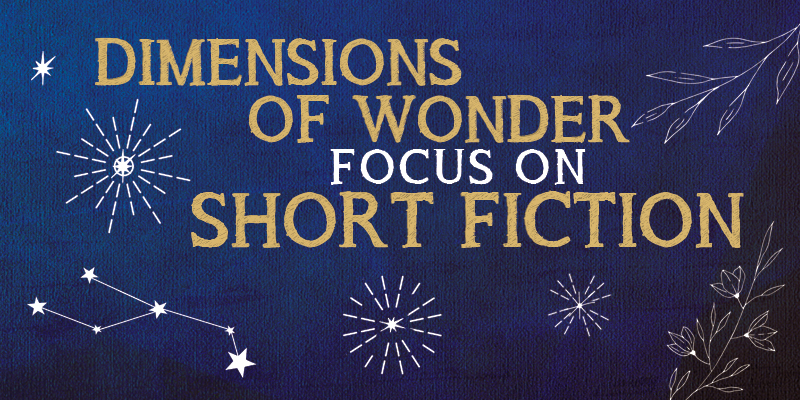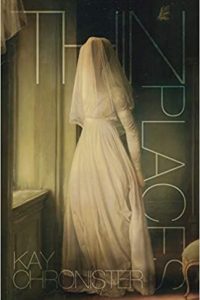A Ramble on How Short Stories Have Shaped my Chaotic Writing Career by Ai Jiang
 I suppose, before diving in, to put it in short, short fiction has opened a tremendous number of doors for me personally as a writer – craft-wise, career-wise, opportunity-wise. I don’t think the trajectory of my writing journey so far would have been as wildly fortunate and luck-filled – at least to me – without short stories.
I suppose, before diving in, to put it in short, short fiction has opened a tremendous number of doors for me personally as a writer – craft-wise, career-wise, opportunity-wise. I don’t think the trajectory of my writing journey so far would have been as wildly fortunate and luck-filled – at least to me – without short stories.
In the summer of 2019, I met a man in a coffee shop because of a food influencer event. He was maybe 60 or 70 and asked me if my current line of work – teaching – made me happy. I told him writing made me happiest. He asked me to write a novella and gave me a three-month deadline. I returned to the meeting spot three months later, not having finished the novella. He never showed up. I stopped writing for a year. (I’d written an essay about this encounter – ‘‘They Call It Serendipity’’, upstreet magazine, issue 18 – that I’ll be republishing on my website soon for others to read freely since it is only in print at the moment).
Then, I became fervent about everything that had to do with writing. I’m not religious, but writing became the closest thing to it, I suppose.
Since late 2020, I’ve sent 1,500+ submissions (a mix of short stories, non-fiction, and poetry) and received roughly the same number in rejections, with most of these taking place in 2021/2022, and since had the luck of seeing 150+ publications. And I think what short stories taught me most is how to swallow rejection and helping develop the much-needed trait in publishing: persistence.
I’d started writing short stories first to get a better grasp of storytelling and language use at the sentence level, to be able to do more with less, to home in and layer meaning within a small space before moving on to long form writing – to learn how to write concisely and sparsely with intentionality. With short fiction, I was able to experiment, play, and practice less-used perspectives and story structures and genres with great abandon – something I would have personally been much more reserved about if I began with long form.
For me, short stories took less time to write, and so I was able to quickly build a large backlog and get my work in front of as many eyes as possible within a short amount of time, and begin building a readership and find like-minded individuals.
Short stories, I find, also work great as fodder for long form and can be later expanded into novellas and novels or used to inspire them.
I have heard many say that each book you write is like a lottery ticket – you never know which one may become a bestseller, if any, but the more books you write, perhaps the higher chances you have at one of them landing. I personally find this to be true with my short story career so far because it was through short stories that I was able to get both my book agent and film/TV agent, to get production company interest in my work, anthology invitations, have my work taught and discussed at institutions like Massachusetts Institute of Technology, University of Wisconsin-Madison, University of Washington, among others, gave me a shot at different awards, get asked to do interviews and appear on panels and podcasts, guest editing and judging and workshop opportunities, and translation rights sales.
Most importantly, it was because of short stories that Linghun, my debut novella, exists. I’d published a short story (‘‘Roaches’’) with Dark Matter magazine, and the editor Rob Carroll had later reached out to see if I had any long formprojects or a pitch for one because he was looking to start a traditional book publishing imprint: what now has become Dark Matter INK and Dark Hart Books. At the time, I’d been thinking for a while about writing a novella or novel, but this moment was what pushed me to finally start.
The book started out as a flash piece of about 800 words, and I had been meaning to eventually expand it, but I think I would have taken much longer to do so or written a different book if I didn’t have this opportunity, or if I had begun with long form rather than short. I’d say that my writing voice and style might have ended up being similar if I began with long form (though my level of experimentality, I think, would not have developed to the extent it has now), but short stories truly helped me refine my craft much quicker.
To the readers who stumble upon this ramble, I do hope that this helps with any skepticism you may have on the practicality and value of short stories and that it encourages you to both embrace the form and support it by reading more of it.
 Ai Jiang is a Chinese-Canadian writer, a Nebula, Locus, and Ignyte Award finalist, and an immigrant from Fujian currently residing in Toronto, Ontario. She is a member of HWA and SFWA. Her work can be found in F&SF, The Dark, and Uncanny, among others. She is the recipient of Odyssey Workshop’s 2022 Fresh Voices Scholarship and the author of Linghun and I AM AI. Find her on Twitter (@AiJiang_) and online (<aijiang.ca>).
Ai Jiang is a Chinese-Canadian writer, a Nebula, Locus, and Ignyte Award finalist, and an immigrant from Fujian currently residing in Toronto, Ontario. She is a member of HWA and SFWA. Her work can be found in F&SF, The Dark, and Uncanny, among others. She is the recipient of Odyssey Workshop’s 2022 Fresh Voices Scholarship and the author of Linghun and I AM AI. Find her on Twitter (@AiJiang_) and online (<aijiang.ca>).
FOR MORE FROM OUR FOCUS ON SHORT FICTION ISSUE…
While you are here, please take a moment to support Locus with a one-time or recurring donation. We rely on reader donations to keep the magazine and site going, and would like to keep the site paywall free, but WE NEED YOUR FINANCIAL SUPPORT to continue quality coverage of the science fiction and fantasy field.
©Locus Magazine. Copyrighted material may not be republished without permission of LSFF.








